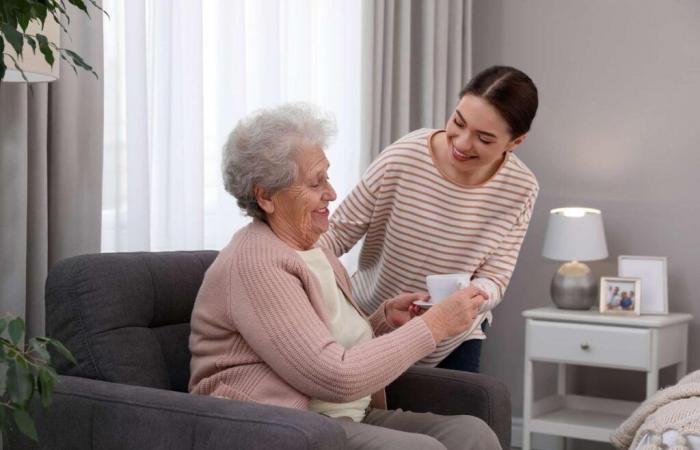The 2024 Santé Respiratoire France survey published on November 22 provides an overview of the caring relationship in the context of chronic respiratory illnesses, where 60% of caregivers report suffering, including 12% in severe distress. The survey highlights differences in perception: 22% of caregivers believe that their loved one is autonomous, compared to 30% of patients who consider themselves completely autonomous. In addition, patients tend to underestimate the importance of moral support provided by their caregivers.
Caregivers report greater difficulties than those perceived by patients. For example, 83% of caregivers and 62% of patients identify anxiety about the future of the person being cared for as the main challenge. Caregivers not only appear more aware of the obstacles ahead, but also express accumulated fatigue and a feeling of lack of recognition. On this subject, 73% of caregivers and only 47% of patients consider that the physical and moral fatigue of the caregiver represents the second major difficulty. Finally, 42% of caregivers, compared to only 14% of patients, denounce a lack of recognition of caregivers from society, those around them and public authorities!
However, 72% of those cared for feel guilt towards their caregiver, while 45% express worry and anxiety about their future. Hence the importance of good communication within the caregiver/care recipient pair.
Improve the caregiver-care recipient relationship, especially in a crisis situation
Being a caregiver and knowing how to adopt the best attitude towards your vulnerable loved one can be complex. The experts from the Collectif Je t’aide explain that it is essential, as far as possible, to reassure your loved one by favoring a posture of observation and attentive listening to their specific needs. This involves understanding what triggers your anxiety: what situation, what behavior or what words provoked a particular reaction? This approach allows you to better adapt your support and respond appropriately to your loved one’s expectations.
Asking these types of questions promotes a broader understanding of the needs of the loved one being cared for and helps avoid a common pitfall: imposing solutions deemed adequate for oneself, without taking into account what is really relevant for the other. While this posture of emotional withdrawal is ideal in theory, it remains difficult to maintain in particularly critical situations. Talking to professionals can help you gain the necessary distance and identify suitable solutions. However, many caregivers remain isolated and do not seek the help they need. Associations offer free helplines, designed to support and guide caregivers in their role.
Ask open questions, listen…
The key to easing tensions lies in finding mutual understanding. Rather than relying on interpretations, it is better to dare to ask open questions of others. This approach promotes constructive dialogue, allowing everyone to express their feelings and better understand those of the other. By adopting this approach, the quality of relationships is significantly improved.
If questioning is important, listening is just as essential. It seems like a simple and natural thing but actually requires specific qualities. Habit and weariness sometimes lead the caregiver to no longer really be able to listen well enough for communication to be fluid and shared, points out Annie Ludinard, caregiver support coordinator and specialist in gerontology, on “Let’s help them ours”, the community portal dedicated to caregivers.
Experience shows that listening is often more attentive when we feel capable of responding. “On the other hand, when we no longer know what to say or how to act, listening tends to become stereotypical,” analyzes Annie Ludinard, influenced by an unconscious selection of what we are still ready to hear or capable of understanding.
“I don’t understand it anymore…”, “We can’t communicate”…
Loss of autonomy often transforms relationships, leading to misunderstandings where the exchange between the caregiver and the care recipient is reduced to monologues. To avoid this, the caregiver must adjust their mode of communication according to the person they are helping, we can read on the site I am a caregiver, which lists some tips for improving communication:
Do not be in a hurry to finish his sentences; Do not interrupt him just because his words seem confusing or incoherent; Allow time for the conversation, without trying to rush it or constrain it; If you do not understand, ask him to repeat and rephrase to clarify; Do not be afraid to admit that you have not understood, clarification is always preferable to misinterpretation; Your loved ones can help you, but do not forget to remind them that these tips are also for them.
Additionally, when words are scarce, nonverbal communication takes on increased importance. The look, gestures, postures, attitudes and touch become powerful means of expression for those who know how to use them.
Dark chocolate, an ally against type 2 diabetes






